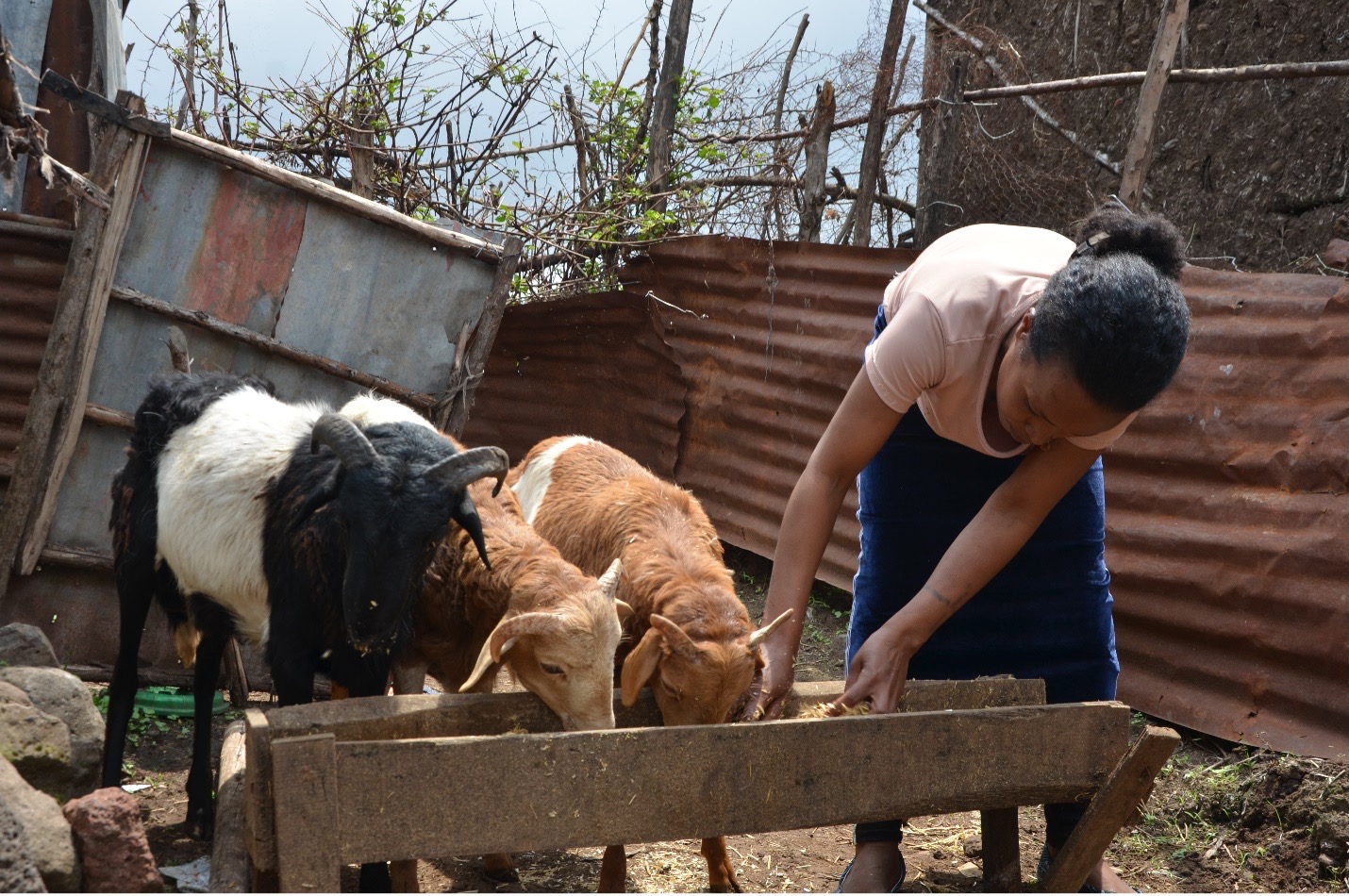
Women Economic Empowerment (WEE) programme

During the past few years, Ethiopia’s economy has been among the fastest-growing economies in the world. Despite the efforts to reduce the gender gap in education, employment, income, and political and economic participations, large inequalities continue to exist in Ethiopia. As the world economy is experiencing a historic economic and social shock emanating from COVID-19, conflict and climate change, uneven impacts across sectors have continued eroding long time results registered in Gender Equality and Women’s Economic Empowerment and amplified the challenges to access decent work for women/girls. Women and girls compared to their male counterparts are still more likely to be unemployed, engaged in informal employment, paid less, responsible for much of unpaid care and domestic work. In 2022, over two third (68%) of Ethiopian female youth aged 20 to 24 were not in Employment, Education and Training (NEET) compared to 47% of male youth in the same age group.[1] The female unemployment rate in 2021 stood at 11.7 percent; more than double the male (5.0 percent) at national level ; much worse in urban context where the overall unemployment in urban areas is 17.9 percent and stood at 25.4 percent amongst females and 12.2 for male. (LMS CSA 2021)
Among the total population, which is estimated to be 123 million in 2022, the rural population in Ethiopia is approximately 83.3% [2] . Agriculture encompasses the largest sector of Ethiopia’s economy, providing 73% of employment, 70% of the raw materials for domestic manufacturing industries while women cover about 70 percent of the agricultural labor force (Food of Agriculture Organization, 2011). However, the country’s agricultural development has faced obstacles from gender-based productivity gap, land degradation and population growth and son on. Female farmers continue to have limited access to and control over fertile land, technological inputs and packages, financial and extension services compared to male farmers. [3]
UN Women in Ethiopia under its Women Economic Empowerment (WEE) designed a comprehensive and multi-sectoral programming approach to contribute to sustainable and scalable economic empowerment of rural and urban women/girls in Ethiopia. The program encompasses interlinked and integrated interventions aiming at sustainable results and multiplier effects. Promoting and Supporting Enabling Policy, Legal and Social Environment; Enhancement of Institutional and Individual Capacities and Private Sectors Engagement are the key central programmatic components across all the interventions.
Enabling Policy, Legal and Social Environment for WEE: The country office works with different stakeholders and coordinate efforts in promoting enabling gender responsive policy, legal and social environment towards women/girl’s economic empowerment through: National Forum on WEE, Networking and Sharing Platforms, production of knowledge products and wider sharing, conducting evidence based policy dialogues; followed by technical support on revisions/development of gender responsive polices/legal frameworks and advocacy for their enforcement. With the objective of changing attitude, behavior, and practices in the community (community at all levels) and institutions, the WEE program applies gender transformative approaches by consciously involving male counterparts.
Institutional and Individual Capacity Building: The program builds the capacity of relevant organizations in mainstreaming gender in their works and be responsive to gender issues and/ or institutionalize gender responsive organizational behaviors and practices; through trainings, exposure visits, technical support and availing different tools, manuals, guidelines and checklists as well as information on good practices. UN Women also supports direct interventions with women/girls in business and aspiring ones in their access to various soft and technical skill trainings, financial and non-financial services, exposures, productive resources, technologies, climate smart agricultural inputs and practices, market opportunities etc. In addition to boosting the economic status of the target women, this is to generate grassroot level evidence that inform policies/actions and to show cases/working models for possible scaling up and replication by development partners. The program works with implementing partners in organizing women/girls in to cooperatives and enterprises followed by various support that sustains their organizations including assisting with tools and system development.
Private Sectors Engagement: UN Women in Ethiopia engages the private sector and supports their partnership on addressing gender gaps and WEE issues by promoting the global Women Empowerment Principles (WEPs) and the gender Responsive procurement Principles. Creating awareness; providing technical support; sharing existing practices at global and regional levels; supporting sharing platforms among private WEPs signatories and other stakeholders ; conducting training and engaging regular bodies and technical support to the private sectors with focus on financial institutions are the main interventions being undertaken as a primary vehicle for achieving GEWE in the workplace, marketplace and in the community.
